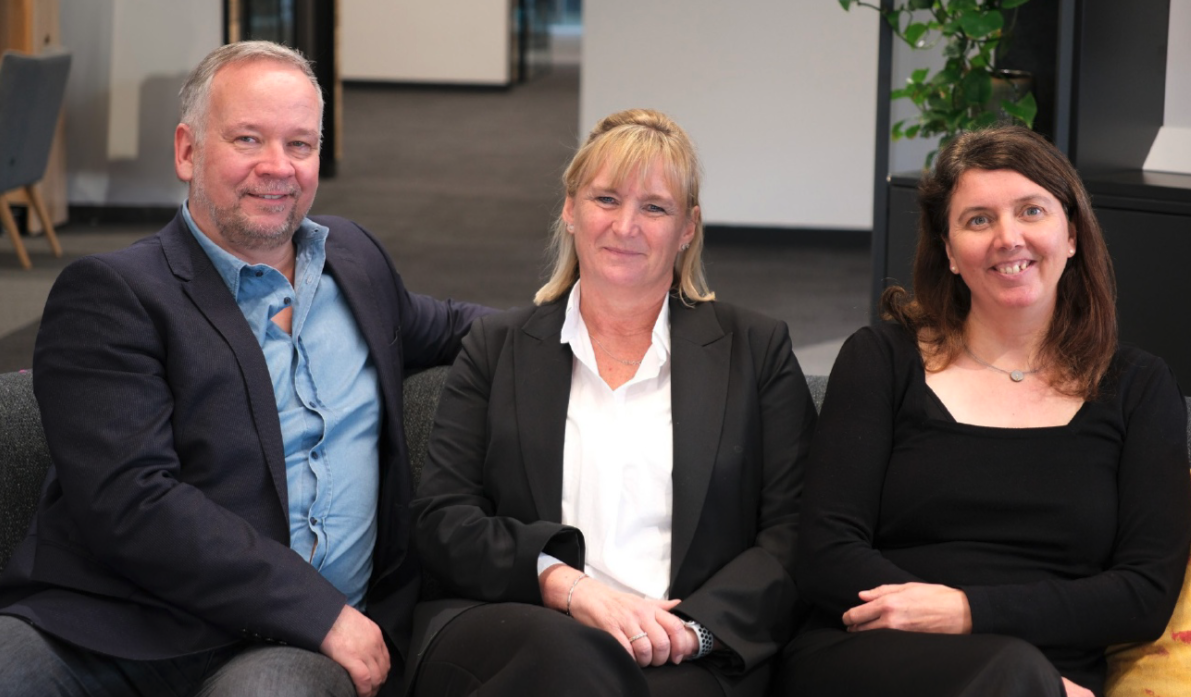
For some, the relentless march of Artificial Intelligence (AI) is regarded as a threat. Computers will soon out-think humans; AI job automation is a growing concern with low-paid workers being especially vulnerable; and AI and deep learning models can be opaque and difficult to understand, even for those who work directly with technology.
For others though, the brave new world of AI opens endless opportunities. Firmly in that camp is Talking Medicines, a company founded in 2013 by Jo Halliday, Dr Scott Crae and Dr Elizabeth Fairley who joined the venture in 2016.
It has been described as the world’s first gold standard provider of structured intelligence in life science and healthcare” and Dr Fairley explains that it is changing healthcare marketing using Advanced Data Science and AI “to unlock strategic intelligence within Healthcare Conversational Data.”
This, she says is delivered through its natural language interface Drug-GPT, which allows precise and structured intelligence from previously unstructured data. This sounds like a complex proposition – so Dr Fairley further elucidates that while the healthcare industry has access to petabytes of unstructured real-world data about patients and physicians which takes months for their healthcare advertising agencies to decode, often manually, if at all.
The ability of Drug-GPT to unlock strategic intelligence within unstructured healthcare data allows agencies to analyse audiences and measure return on investment (ROI) against messaging sources which in turn creates better patient/doctor communications – and helps resolve the dilemma that now results in more prescriptions written than pills being taken.
“You can imagine at an industry conference there are lots of conversations taking place around a drug that might be coming on to the market. We do much to ensure that those involved on the medical side understand the opportunities the drug offers, which can then be communicated on a larger scale to a vast number of healthcare professional’s,” she says.
Often, she adds, pharmaceutical companies who have marketing agencies are keen to understand the messaging around a drug to communicate its benefits “so we have clever ways that we can zero in on a message and evaluate how well it resonates within a population.”
Importantly for Talking Medicines, realising the potential of Drug-GPT will play a valuable role in helping healthcare advertising agencies to win and retain clients through increased efficiency and effectiveness. And it is less costly to retain an existing customer than to acquire a new one.
The company says that pharmaceutical firms currently spend $30 billion on marketing via agencies to educate doctors and patients because poor medication adherence costs these companies $250bn.
“Analysing the material that comes out of focus groups such as transcripts is hugely time consuming for advertising agencies so because the way in which we organise, structure and provide the intelligence through Drug-GPT we’ve proven time and time again that we can enable the healthcare industry to spend more time on strategy” says Fairley.
“We also enable them to ask more complex, deeper questions on the data, which can result in an 80 per cent uplift in their productivity.”
The founders have varying backgrounds. Jo Halliday has corporate marketing experience, while Scott Crae leads on ESG matters and Dr Fairley has a background in life science and data. “We have quickly accelerated in the area of human data intelligence,” she says.
Just over three years ago Talking Medicines launched an office in New Jersey in the US, and she describes the reaction there as “fantastic.” The move was helped by the fact that Dr Fairley had been a fellow on the Entrepreneurial Scotland programme in 2013-2014 and spent time in Boston, Babson College and undertook a project in Silicon Valley in California.
“It’s great to have started and grown the company here in Scotland as it’s an excellent life science ecosystem for developing and scaling a business – but it’s also good to look outward and I’ve met some amazing people through Entrepreneurial Scotland, many of whom I’m still in touch with today and who have helped me personally on my journey as well as the development of Talking Medicines,” she says.
“We’ve have moved really well into the market in the New York area, have won awards and been recognised what we do and that is really coming into play now regarding revenue generation, which is super exciting.”
The company is supported by investment through Scottish Enterprise, global technology investor Tern Plc, Social Investment Scotland Ventures (SISV), ThairmBio – which helped its expansion into the US market – and private investors.
It was founded on the principle of ‘profit with purpose’, which a social mission of delivering better health outcomes for patients. “From a pharmaceutical company’s perspective, it works with the advertising agencies to develop a strategy around how it engages with doctors and ultimately how it delivers better outcomes for patients,” says Dr Fairley.
“We’re the bridge between these parties and while at the core of what we do is our AI and data technology we have a vast amount of knowledge of the life science industry and regulatory matters – and there is a twin component involved which is very much the human factor.”
Now with a staff of 30 Fairley describes Talking Medicines as a fast-paced, agile and innovative company that’s always looking for people who can help it grow quickly and expand its marketplace but also align with the values and the business as it has already developed.
“There are still many interesting areas for us to expand into, using our technology. At the moment, we’re very focused on health, disease and drug positioning but as we grow, we will be able to broaden its use which will be positive – but remaining at its heart is our ability and expertise in structuring health data.”